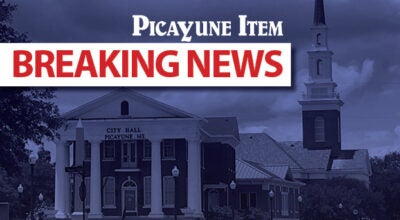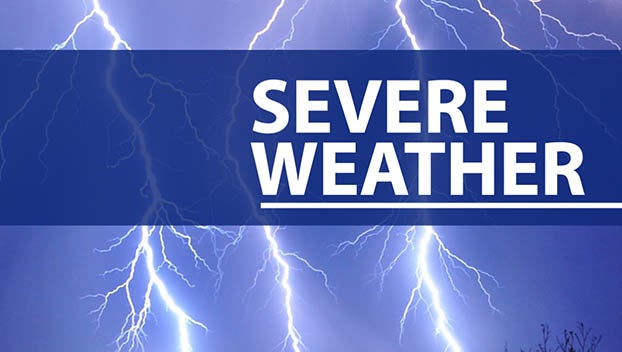Today is August 20, 2021
Published 7:00 am Friday, August 20, 2021
NATIONAL RADIO DAY
Each year on August 20th, National Radio Day recognizes the great invention of the radio. Celebrate the news, information, music, and stories carried across the airwaves.
Several inventors had a part in the invention of the radio in the late 1800s. Amazingly, not just one person can be credited with its beginning. Instead, each component developed through invention and discovery. As these technologies converged, the radio came to life.
THE CONTRIBUTORS
In the paragraphs that follow, a noted international effort contributed to the conception of the radio. In Germany, Heinrich Hertz’s research proved electricity could be transmitted wirelessly. Elsewhere, the prolific inventor patented multiple inventions and provided the radio with the Tesla coil. Born in Croatia, Tesla also contributed many patents involving alternating current. Not only did Tesla make the radio possible, but he also advanced the science and production of numerous other inventions. However, when it comes to the first commercially available wireless, Italian, Guglielmo Marconi receives the honor.
Entertainment and music didn’t always fill the airwaves. In fact, the radio’s first function was much more practical. First, the wireless radio served the military. The radio also provided a regular public service role. Much like the dits and dots of a telegram, the wireless transmitted information. Aboard the Titanic at the time of its sinking, a Marconi wireless broadcast the ship’s distress signal. In 1906, the first radio broadcast of voice and music purely for entertainment purposes aired. Reginald Fessenden transmitted the program from Brant Rock, MA for the general public to hear. The Canadian born scientist would go on to many more successes in his lifetime.
An American contributor to the radio, Lee de Forest invented the Audion vacuum. This invention made live broadcasting possible. Born in Iowa in 1873, de Forest would become the chief scientist for the first U.S. radio firm, American Wireless Telephone, and Telegraph.
BROADCASTS
The 1920s brought the first broadcast stations to the forefront. Around the world, listeners tuned in for news and world events for the first time. Other radio facts include:
- Radio ownership grew. In 1931, two out of five homes owned a radio. By 1938, four out of five owned a radio.
- According to FCC statistics, at the end of 2012, more than 15,000 licensed broadcast radio stations were operating in the U.S.
- On October 1, 1999, the first satellite radio broadcast occurred. Worldspace aired the broadcast in Africa.
August 20th Celebrated (and Not So Celebrated) History
1858
Charles Darwin and Arthur Wallace both publish their theories on evolution in The Journal of the Proceedings of the Linnean Society of London.
1866
Nearly a year after the end of hostilities, President Andrew Johnson formally declares the end of the American Civil War.
1872
William Robinson receives patent No. 130,661 for his open circuit signaling system for railroads.
1882
Pyotr Tchaikovsky debuts his 1812 Overture in a specially built concert hall in Moscow.
1897
Sir Ronald Ross dissects an anopheline mosquito and discovers malaria parasites. His discovery went on to prove how anopheline mosquitoes spread malaria.
1911
The New York Times sends the first telegram around the world. Using a commercial service, their mission was to determine the speed of a message sent around the world by telegraph. The message was relayed by 16 different operators over 28,000 miles and was received 16.5 minutes later. What did it say? “This message sent around the world.”
1920
The American Professional Football Association forms and elects Jim Thorpe as their first president.
1920
The first commercial radio station begins airing. Started by The Detroit News, the station’s original call sign was 8MK.
1929
La Choy receives a registered trademark for its brand name products – registration number 0260241.
1960
The Soviet’s Sputnik 5 with two dogs, mice, rats and plants return to Earth after a 1-day venture in space. Belka, Strelka and the other living creatures were unharmed during their voyage.
1965
Rolling Stones release the single “(I Can’t Get No) Satisfaction” in the United Kingdom.
1977
NASA launches Voyager II into space with a record including greetings in 60 languages as well as scientific information, music and Earth sounds.
1985
Dwight Gooden becomes the first National League pitcher to strike out more than 200 batters in his first 2 seasons.
1998
The Supreme Court of Canada reaches a decision regarding the legality of Quebec succeeding from Canada. After two failed referendum attempts to vote for sovereignty by the governing party, Parti Quebecois, the Canadian government brought the issue to the courts.
August 20th Celebrated (and Not So Celebrated) Birthdays
Thaddeus S.C. Lowe – 1832
Known as the grandfather of the United States Air Force, Lowe served Union Army during the American Civil War. His contributions to aeronautics come in the form of hydrogen balloons and other aerial tools used to spy on the Confederates.
Benjamin Harrison – 1833
Benjamin Harrison served as the 23rd president of the United States and the only president from the state of Indiana.
HP Lovecraft – 1890
The prolific writer of horror and the bizarre never lived to see the success of his work.
Roger Wolcott Sperry – 1913
Sperry’s research in the nervous system led to several breakthroughs. One included a better understanding of the optic nerves.
Jacqueline Susann – 1918
Writer Jacqueline Susann is best known for her novel Valley of the Dolls.
Jim Reeves – 1923
Known as “Gentleman Reeves,” the country music artist gained a huge following overseas.
Don King – 1931
The flashy boxing promoter is known for organizing bouts for Mohammad Ali, Joe Frazier, Sugar Ray Leonard, and Mike Tyson to name a few.
Connie Chung – 1946
As a journalist, Chung reported on several television news shows. In 1993, she broke into the national networks when she was hired as co-anchor for CBS Evening News. Chung was the first woman to hold this role and only the second woman to anchor a major network newscast in the United States.
Al Roker – 1954
Before replacing Willard Scott presenting the weather and other segments on the Today show, he started with smaller venues and filling in for Scott.
Joan Allen – 1956
The television and Broadway actor has appeared in numerous roles including Pleasantville, The Bourne film series, and The Notebook.
Patricia Rozema – 1957
The film director, writer, and film producer is best known for her work on the films Grey Gardens and A Wrinkle in Time.
Sally Yates – 1960
The former deputy attorney general was also the lead prosecutor of the Atlanta Centennial Park bomber, Eric Rudolph.
Amy Adams – 1974
The versatile comedic and dramatic actor has played several starring roles since her breakthrough in Enchanted in 2007.



